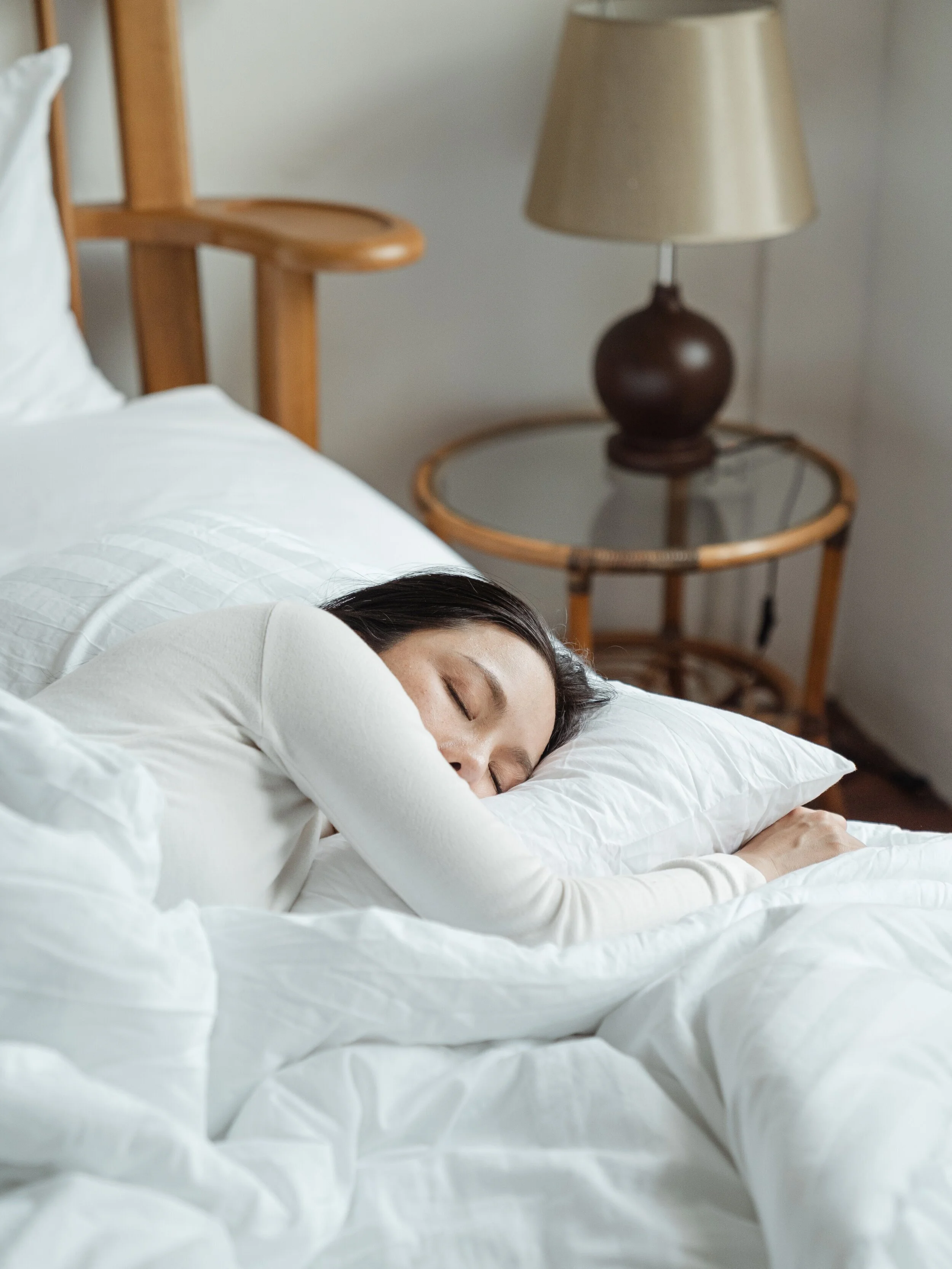How to get a Decent Night's Sleep
Midlife is a time of major hormonal, physical and psychological change. Although menopausal symptoms can and will vary from woman to woman, from peri-menopause to post-menopause, studies say that women report the most sleeping problems. These include hot flashes, mood disorders, and insomnia. To talk more about this and to explain how to help, we spoke to Catherine O’Keeffe of wellnesswarrior.ie, an expert on all things menopausal.
WHY CAN’T WE SLEEP?
One of the biggest disconnects now, Catherine explains, is the link between Covid and the “pressure” of trying to sleep regularly. “You might think, ‘I’m exhausted, I’m going to fall right asleep’ and you fall asleep but you wake up – there's a disconnect there between people realising that the Cortisol (a stress hormone released by the adrenal gland) is still revving around your body and because of this, you’re not in the sleep mode you need to be in for deep sleep. I talk to a lot of people who don't actually understand that. And then you think, ‘Oh, my God, when I go to bed I'm wrecked and I fall asleep straight away, so why am I waking up?’ And you’re waking up because even though they are physically and mentally wrecked, it all goes back to the Cortisol still zooming around the body because the stress hasn’t been handled.”
LOOK AT YOUR STRESSORS
“First of all, it comes back to avoiding caffeine after 1pm and also wine in the evening – they are also two things that really should be avoided if you’re dealing with night sweats. It's also going back to the fact that you’ve got to look at the stressors, what are your triggers during the day? What’s sending you or pulling you over the edge that tells you during the day you're feeling stressed, and that you're not relaxed?
“And you need to one by one, start looking at what these stressors are, identifying your triggers and change your habits. And I always say, don't rush to make 50 million big changes, it's just do something small. One thing at a time, because otherwise, you'll overwhelm yourself. Stress is such a compounding factor of menopause symptoms. “
“And the other problem is that women in menopause, anyway, they're overwhelmed. It’s simple, straightforward things they need which will help. “
THE SIMPLE THINGS
It is, Catherine reiterates, all down to small steps, which will make a big difference.
“So, eliminate caffeine – anyone suffering from any sort of sleep issue should not be drinking caffeine past two o'clock the day – they should look to herbal or mint teas. And again, alcohol intake has to be looked at. I could link alcohol back to almost every single symptom of menopause, apart from vaginal atrophy.”
MORNING SUN
“What is also really really good for sleep is daylight. And that is ideally getting the early morning sun. One of the things that I was guilty of myself during the first few weeks of Covid was sleeping in and going to bed later. We all were guilty of this! Our sleep clock loves routine – you have to keep this if at all possible. If you're not sleeping well during the night and then you wake up at half seven and you might be tempted to have another two hours, really try to force yourself to get up.“
DE-STRESSING ACTIVITIES
“Even if it's a walk, and bearing in mind that a lot of women in the in menopause might have no energy, you can go for what I call a 10-15 minute gentle walk. It's making sure that you get out before midday so that you get that early morning sun into your system – it means that you're helping your body clock in terms of its natural rhythm.
“Ultimately, it’s whatever works for you – that could be washing the dishes at the sink! It doesn’t have to be mindfulness. You could be making the bed or reading the book but it's something where you're just present and you're just you're giving your brain a break. We're continuously processing and our brains need a break. Or, you could try taking a natural remedy – Magnesium is brilliant for aiding sleep.”
KEEP YOUR ‘SLEEP HYGIENE’ IN CHECK
More tips to ensure you are as ready for a good night’s sleep as you can be, include:
Aiming for 30 minutes of exercise daily but avoid exercising too close to bedtime.
Don’t nap during the day if you can avoid it.
No heavy meals after 8pm.
No phone or screen at least 30 minutes ideally an hour before you go to bed.
Keep your room dark and cool.
FOR NIGHT SWEATS & FLUSHES
Wear light nightclothes
Check your bedding – often people don't realise but their bedding can be making things worse – avoid a mattress protector.
Keep a cool room.
Accept the symptoms – resistance is exhausting, you will make progress by accepting what is going on in your body and look to find ways to relieve it.
Overall, she says there’s no one-size-fits-all treatment but adds that if the above steps aren’t helping it’s worth a visit to your GP to pin down the root cause of your sleeping issues. “When it comes to menopause overall, women will always have a different experience or a different story – it’s about finding what works for you.”
not a member yet?
discover heyday & Subscribe to access all content.
join us in conversation
we’d love to hear from you…
















